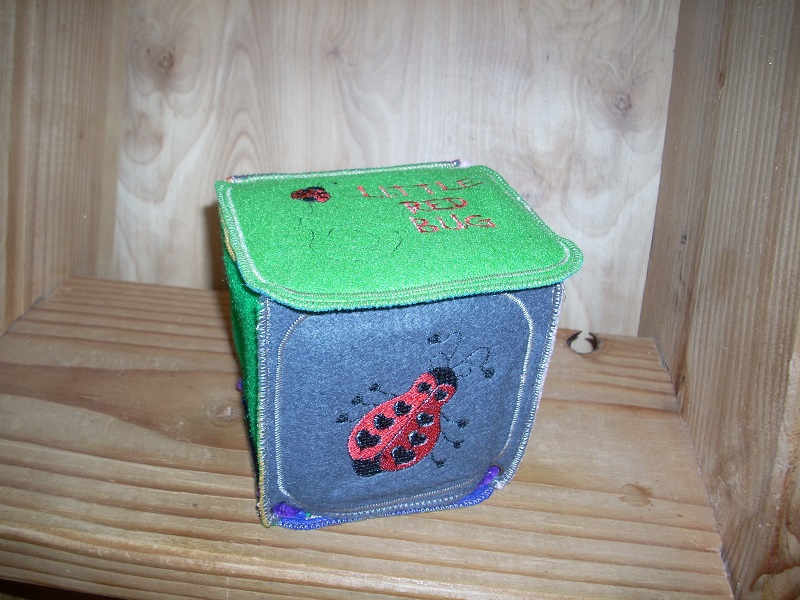
front
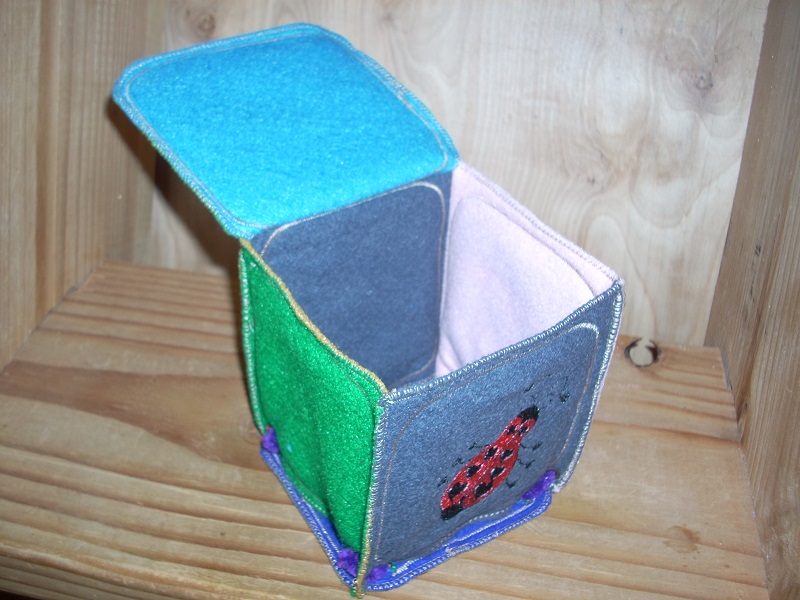
hinged lid
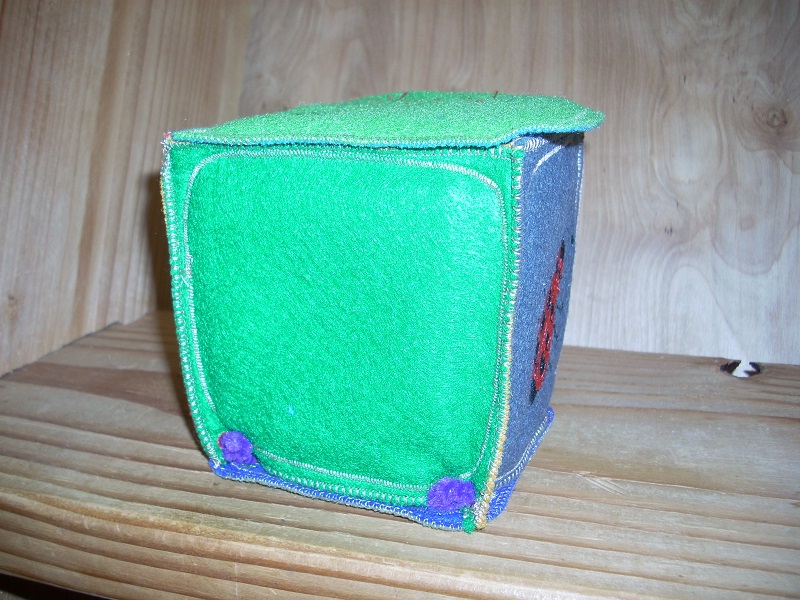
side
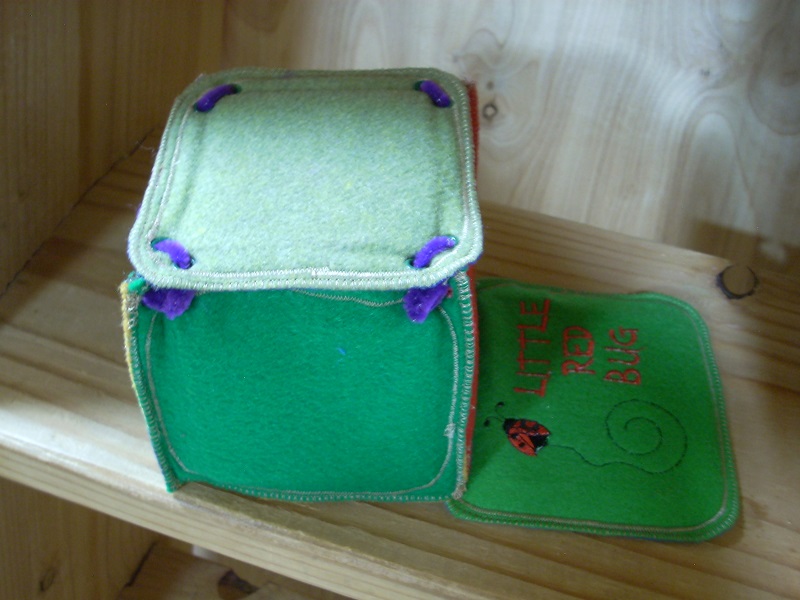
bottom
 front |
 hinged lid |
 side |
 bottom |
|
(1) Cut a cardboard shipping box into manageable pieces: Use an old (say) Amazon shipping box for the cardboard. First, cut any tape; then flatten and separate into pieces along seams. (I use a quilting ruler and rotary cutter on a cutting mat.) The cardboard will be completely hidden; it doesn't matter if there are markings on it (unless your felt/fabric is very light and see-through). |
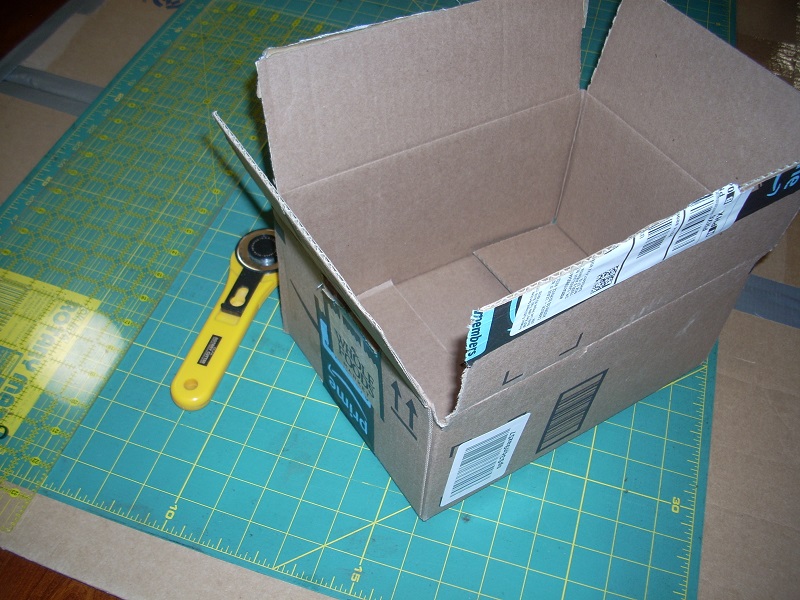 cut up an old shipping box |
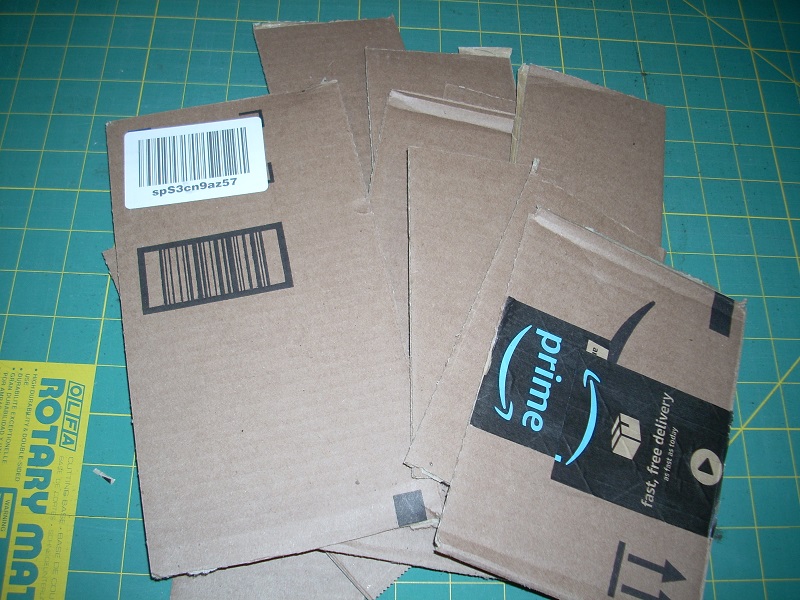 separate into pieces
separate into pieces
|
|
(2) Cut cardboard for box bottom and top: Set your to-be-boxed item on the cardboard. Cut a close/tight square (based on the biggest dimension: length/width/height). For example, if your item is 3.5" x 2.5" x 2", then cut a 3.5" square. This is your BOTTOM. Note: the technique used will automatically make the box a bit bigger, for easy insertion/removal of item. Cut a second square 1/4" bigger all around; this is your TOP. |
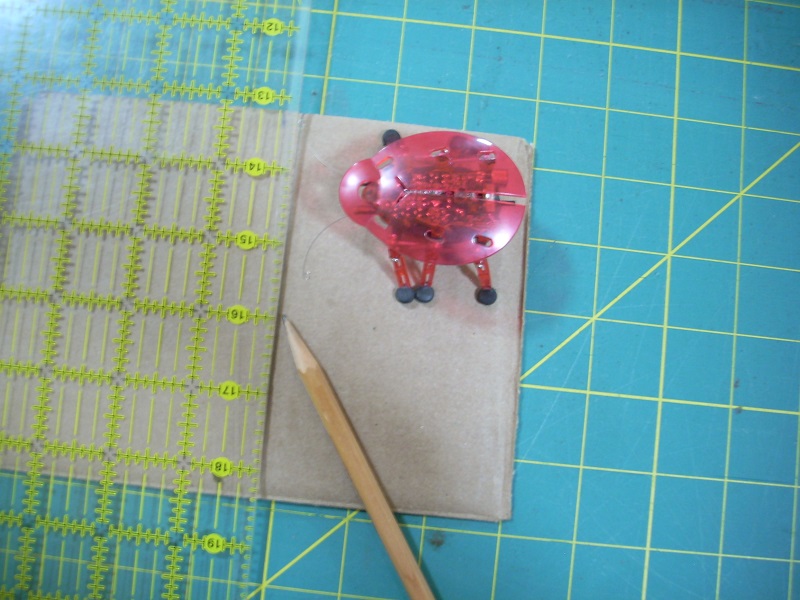 cut a tight square around to-be-boxed item; (the antennas on the left are a bit hard to see) |
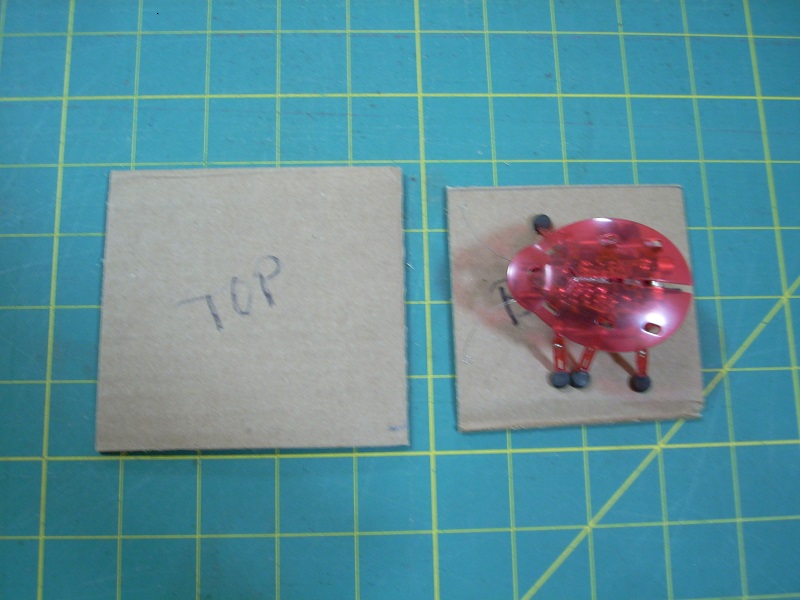 cut top 1/4" bigger all around
cut top 1/4" bigger all around
|
|
(3) Cut cardboard for box sides: Cut four SIDES, identical to the BOTTOM. |
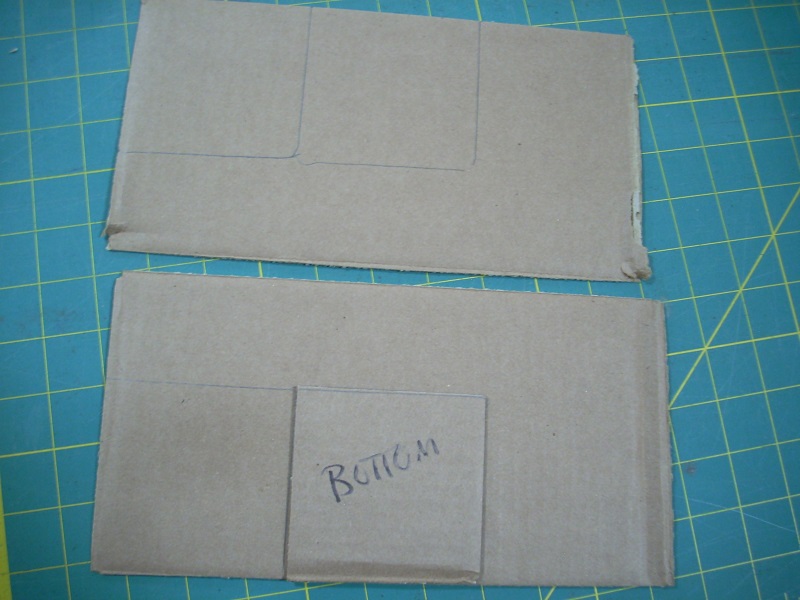 trace around bottom and cut (OR: measure and cut) |
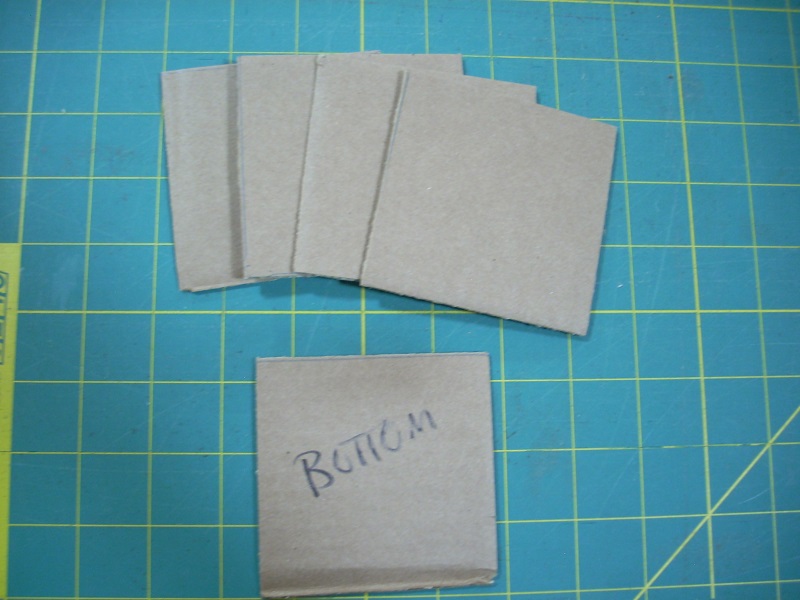 cut four sides identical to bottom |
|
(4) Cut felt to enclose cardboard: You must use material that will not ravel (like felt). You need two pieces of felt for each piece of cardboard. The felt should be 3/4" bigger, all around. For example: If your bottom/side squares have side length 3.5", then cut 10 squares of felt with 5" sides: 3.5 + ¾ + ¾ = 5 Remember: the top squares will be a bit bigger. Mix up colors, as desired. Have fun! |
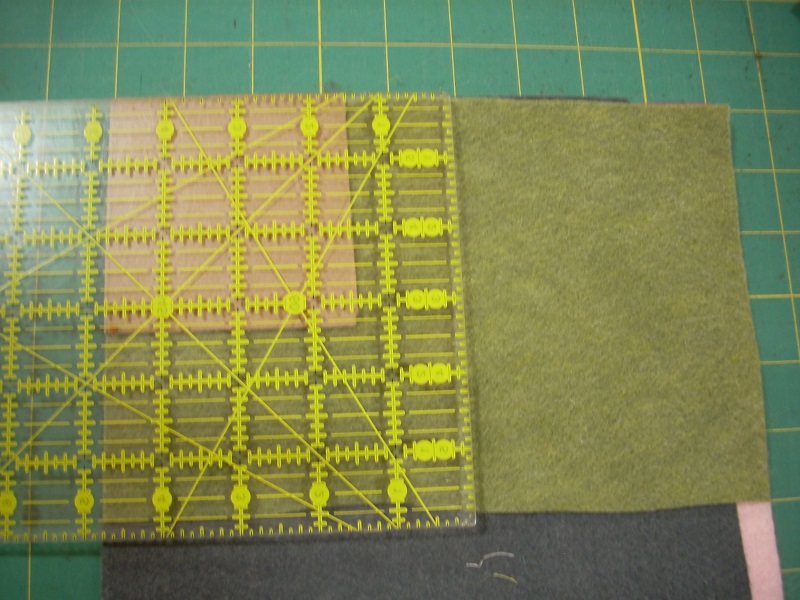 you can cut several pieces at once; use ruler markings to help you cut |
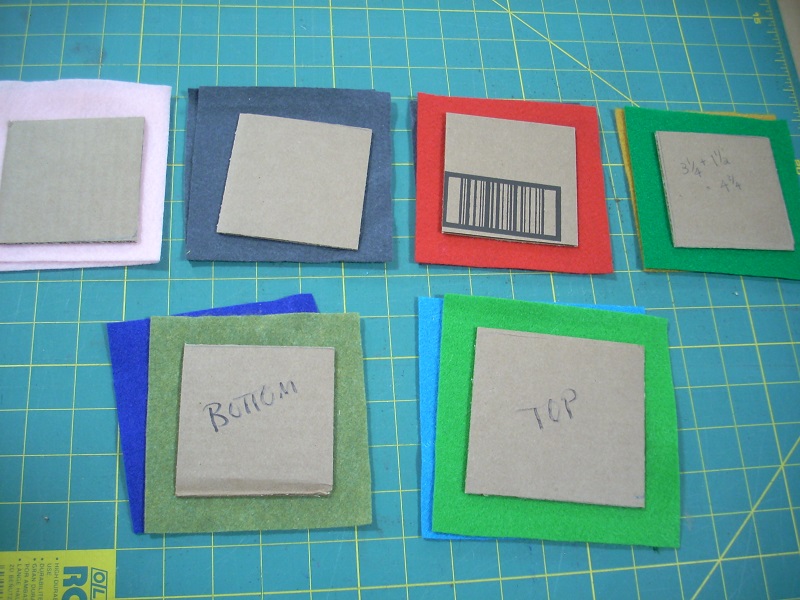 cut ten identical pieces to enclose sides/bottom; cut two (slightly bigger) pieces to enclose top |
|
(optional) Embroider labels: If desired, embroider label(s) on felt. Use a temporary adhesive spray to adhere felt to stabilizer sheet. Don't spend much time trimming stabilizer or threads on the back, since it will be hidden inside the cardboard pouch. |
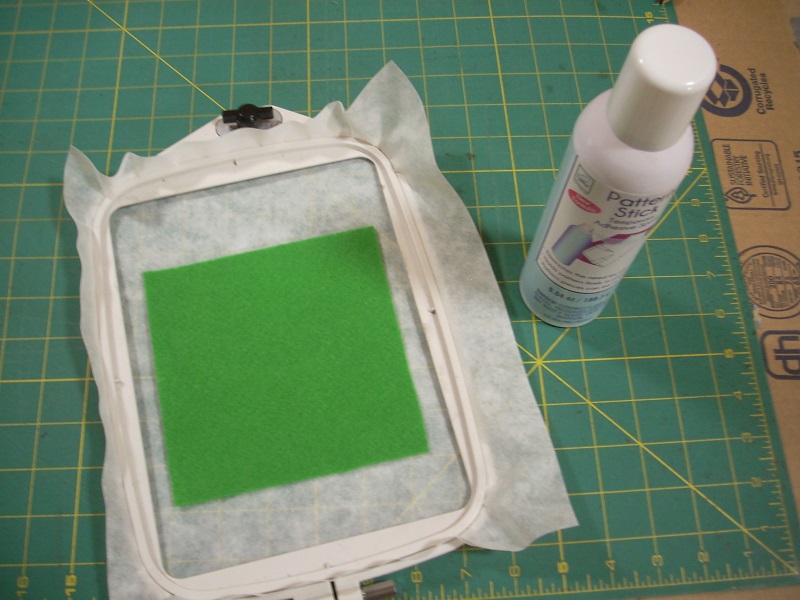 use spray adhesive to attach felt to stabilizer |
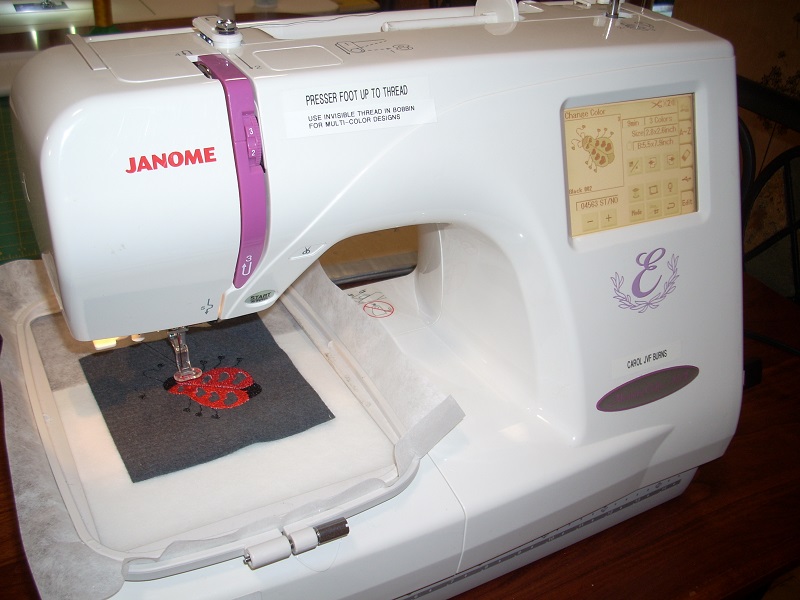 I love my Janome Memory Craft 350E embroidery machine! |
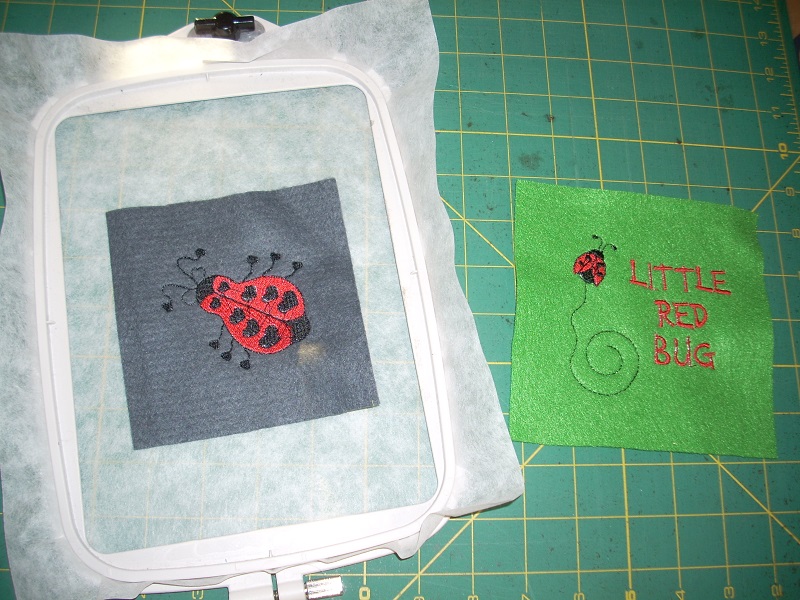 label for top and one side |
|
(5) Sew felt/cardboard sandwiches: Spray a dot of temporary adhesive on both sides of cardboard. Sandwich cardboard piece, centered, between felt. For multi-colored boxes, I use the same (neutral) color thread for all sewing. Use the default zigzag stitch width; increase density (Janome 9400QCP: width 3.0, density 0.8). Start sewing in middle of a side. Push all-purpose presser foot right up against edge of cardboard. Zigzag around, rounding corners. Repeat for all cardboard pieces. |
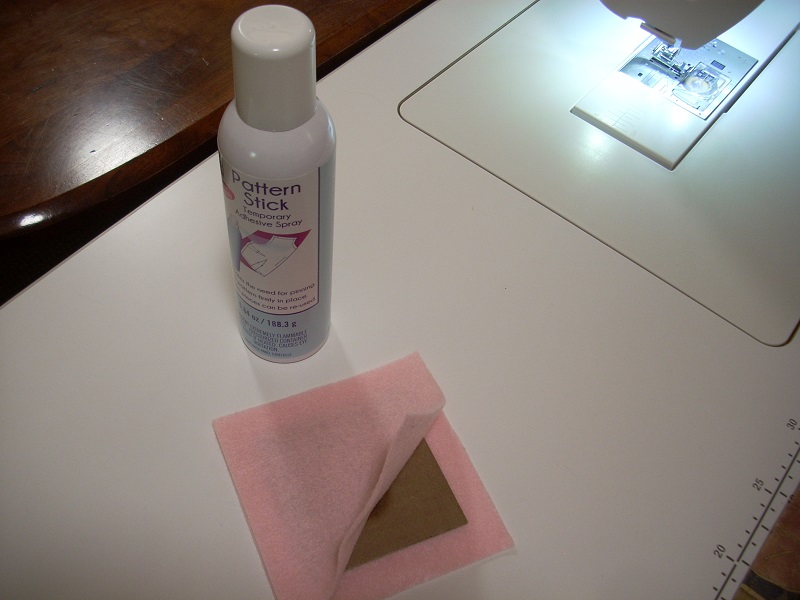 sandwich cardboard piece between felt |
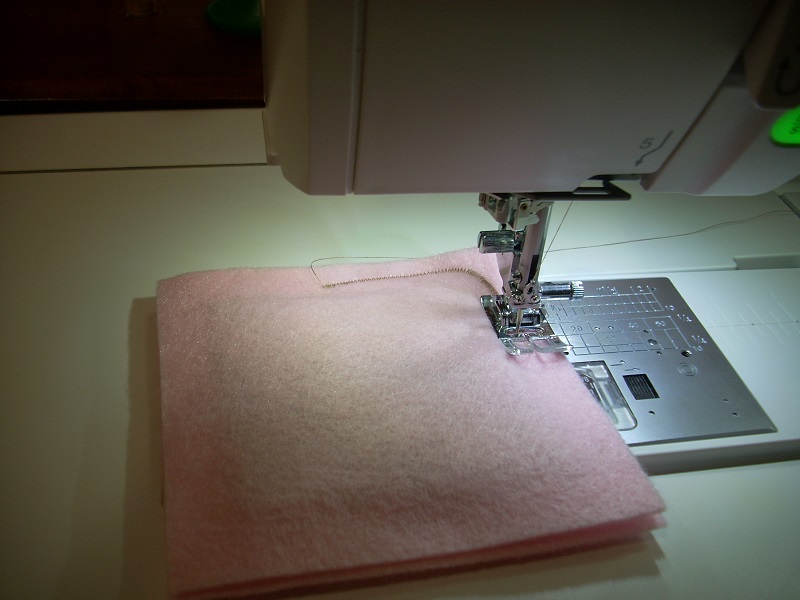 zigzag: run presser foot right up against cardboard; round corners |
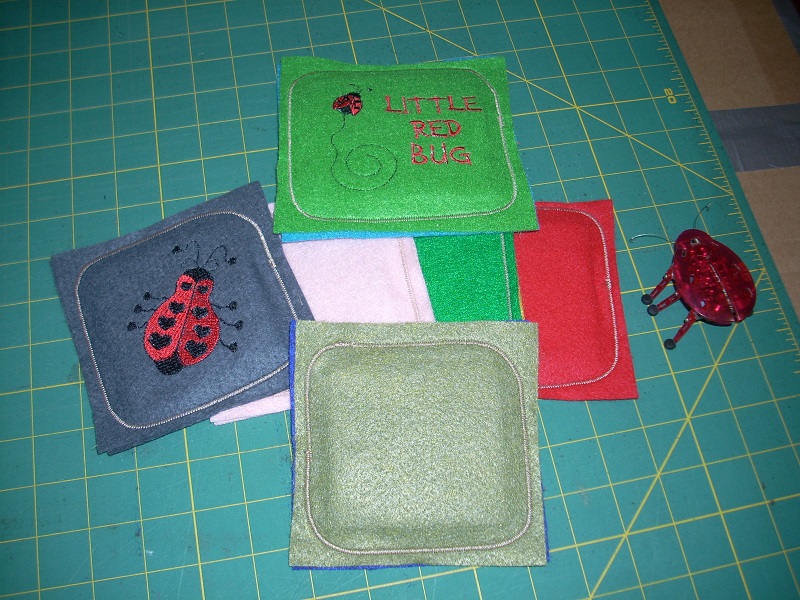 don't do any trimming (yet) |
|
(6) Stitch side pieces together: Lay out the four sides in the desired order, with the outsides of the box facing up. The sides are attached to each other with an overedge stitch. (Janome 9400QCP: utility menu, overedge, pressure foot M, density 1.5) Sew with right sides out. Keep project on the left as you sew. At this step, you only sew three side seams. Do not sew the last side seam together yet! |
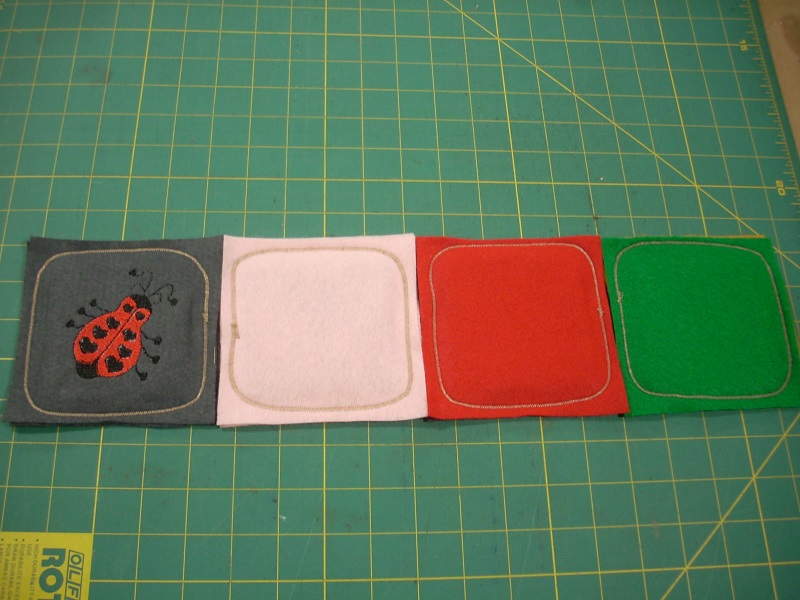 lay out sides, outsides facing up |
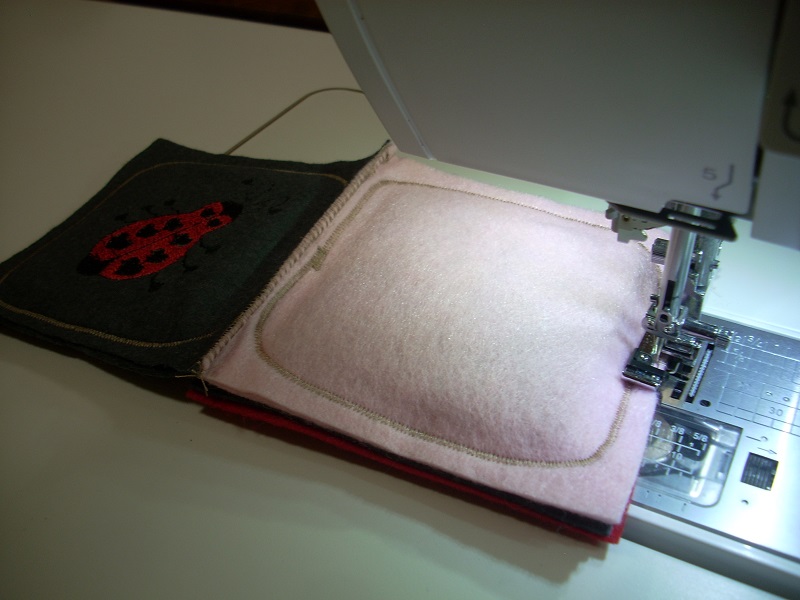 sew with right sides out; use overedge stitch; keep project on left |
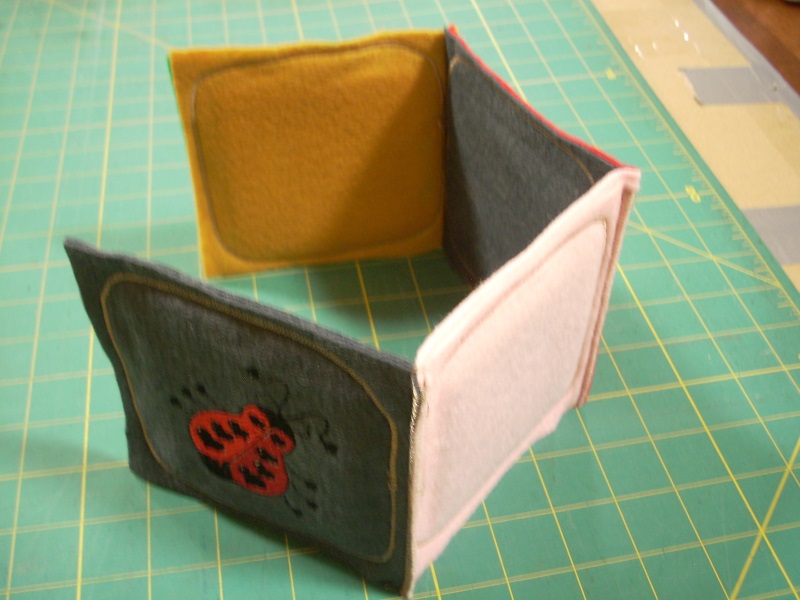 the last side gets sewed later |
|
(7) Finish edges with overedge stitch: Sew all these finishing stitches with the outsides of the box facing up. As needed, straighten/trim edges with ruler/rotary cutter before stitching. Finish both long edges of the side piece. With scissors, gently round the corners of top and bottom. Then, finish all edges of top and bottom. |
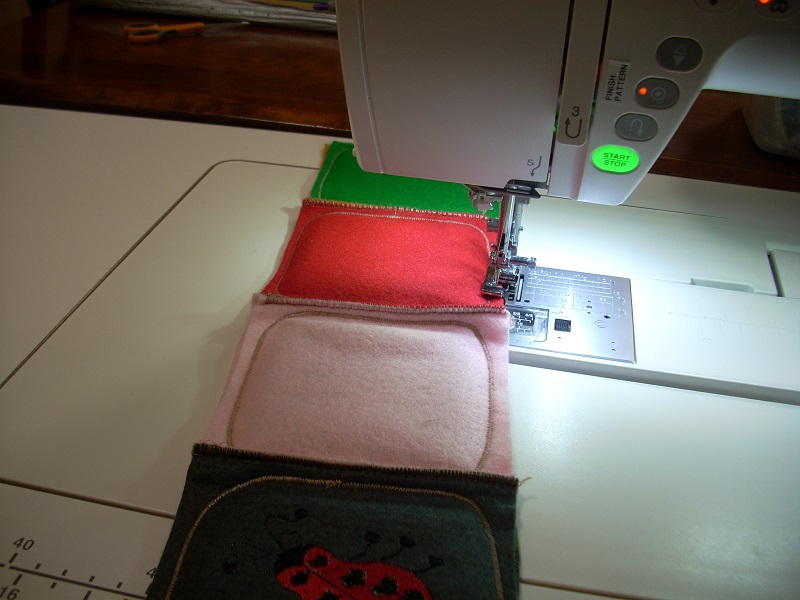 finish long edges of sides |
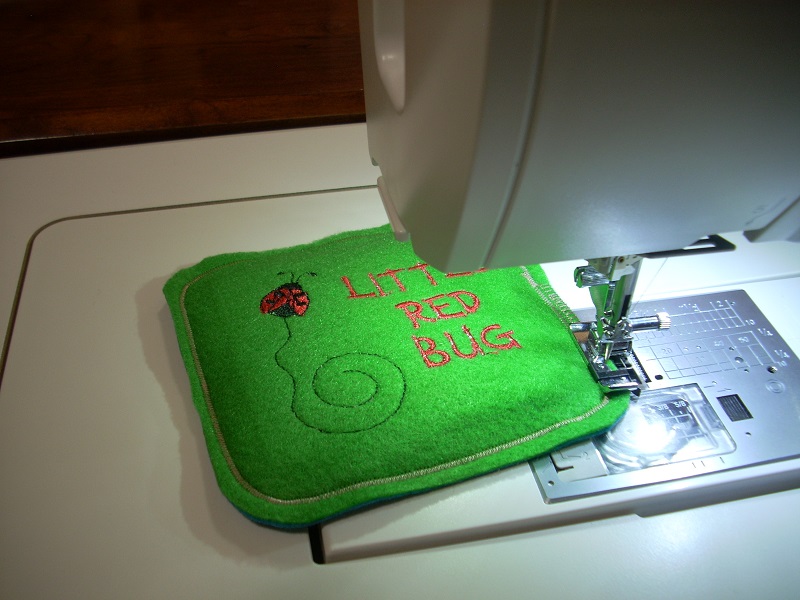 round corners on top and bottom; finish all edges |
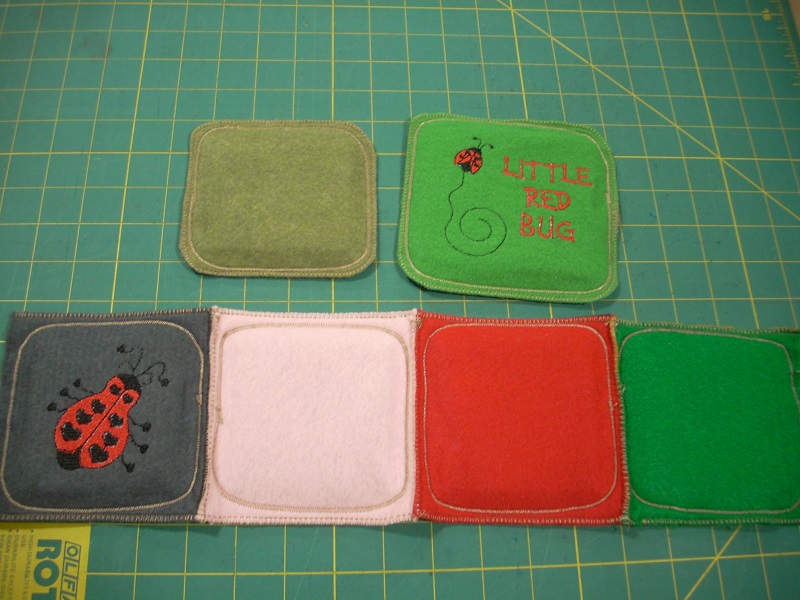 ready for assembly |
|
(8) Create hinge for top: Decide where you want the ‘hinge’ for the top. Center the top, right sides out, on the desired ‘hinge’ edge. Since the top is bigger, it overlaps the adjacent sides a bit—this is correct. Overedge, sewing just along the length of the side square. Do NOT sew the tiny bits that overlap the adjacent sides! If desired, overedge a second time for durability. |
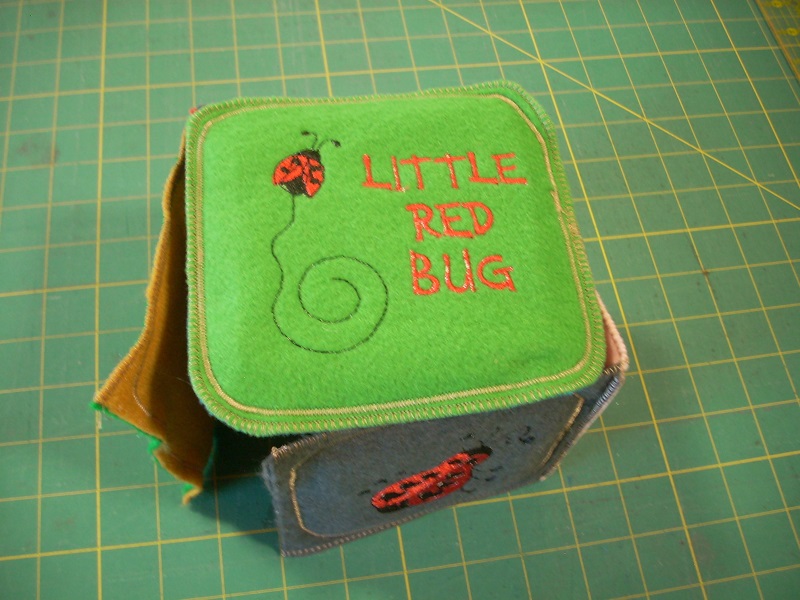 decide where you want the ‘hinge’ for the top |
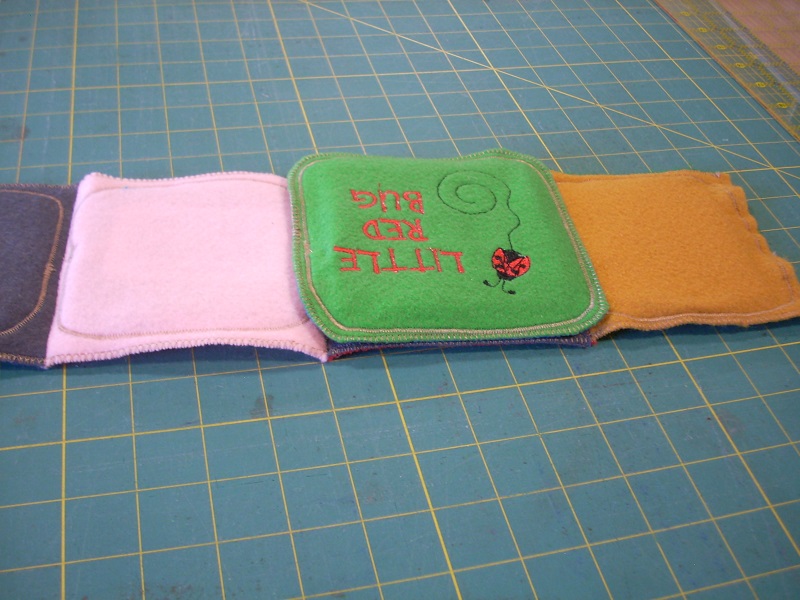 center top, right sides out, on desired ‘hinge’ edge |
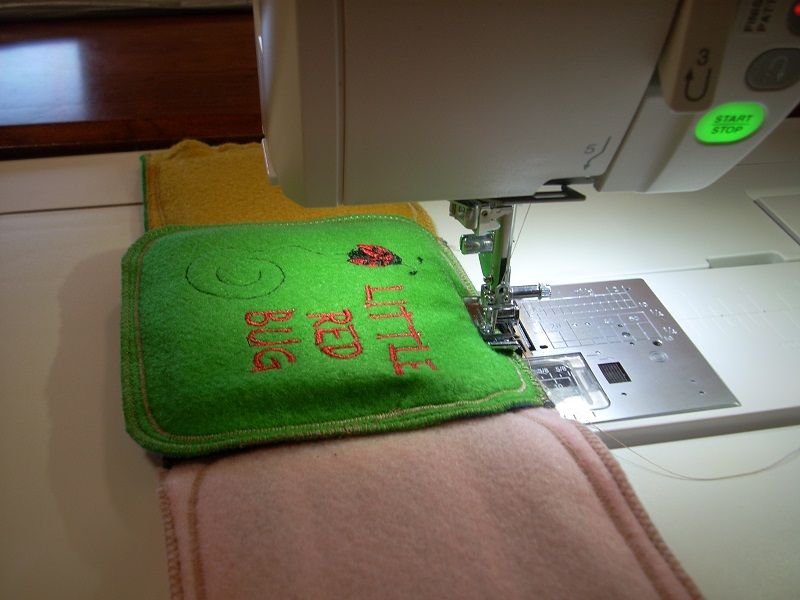 overedge to attach top; do not sew the overlap bits |
|
(9) Finish sewing sides: Fold so that the (final) unsewn side edges are together. Make sure that right sides are facing out. Overedge the final side seam. |
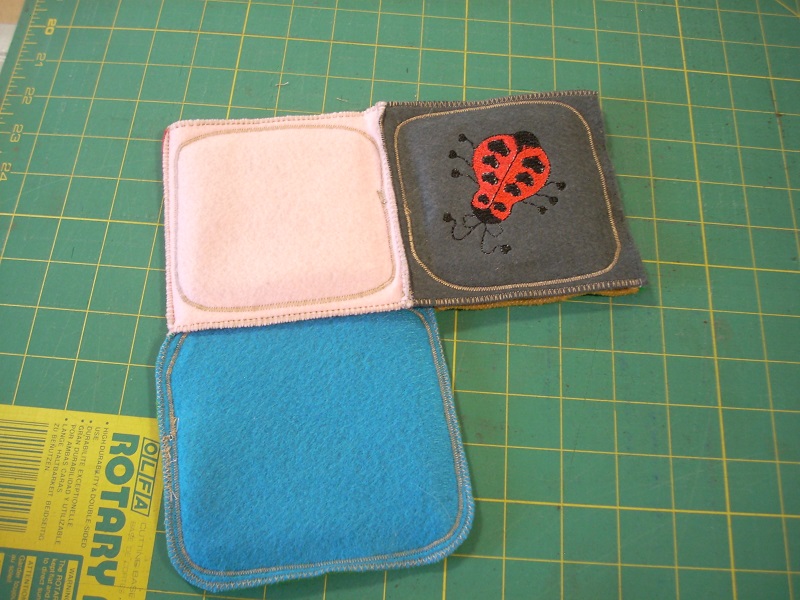 fold so that the (final) unsewn side edges are together |
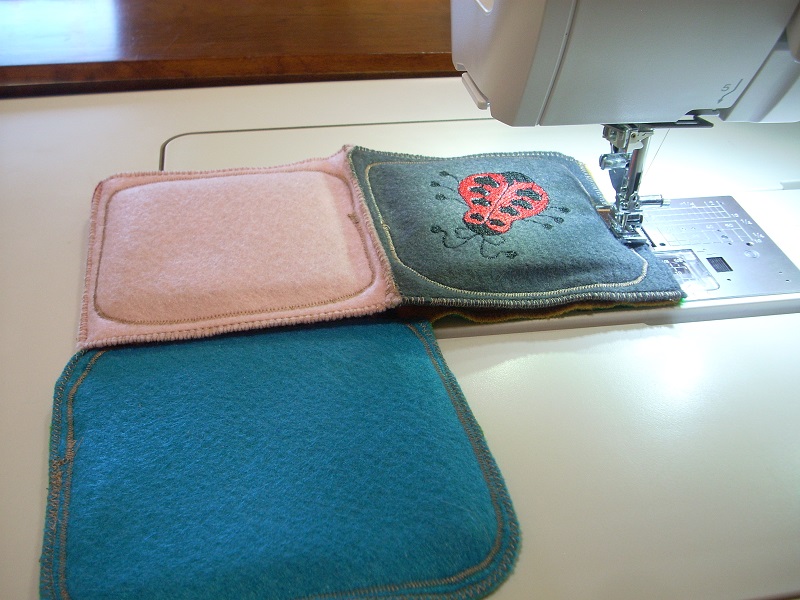 overedge final side seam |
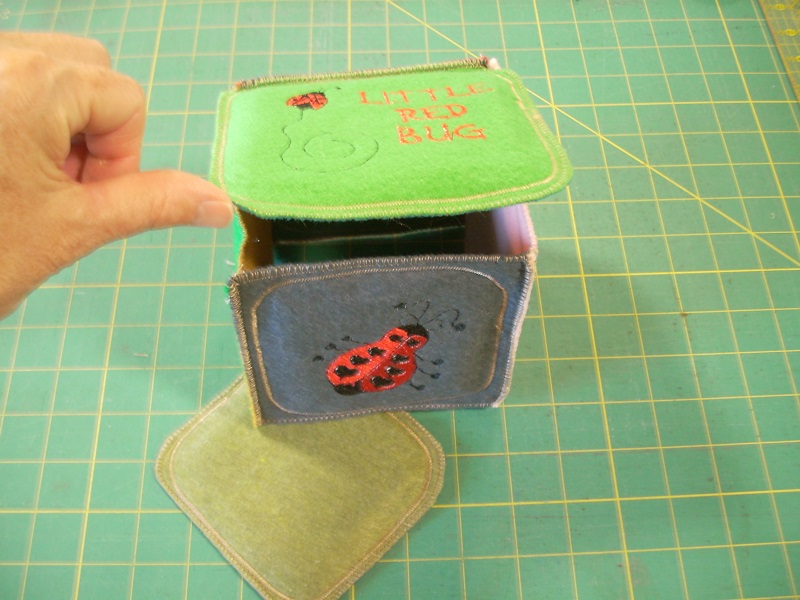 on to the last step: attach bottom |
|
(10) Attach eyelets to bottom corners: I use Crop-A-Dile to attach eyelets. Here's a video on how to use the Crop-a-Dile. For this project:
Pinch the four bottom corners together. Each eyelet, when attached, has a ‘pretty’ side and a ‘smushed’ side. Decide where you want the ‘pretty’ side of each eyelet to go. Choose an eyelet color that matches each chosen side. At each pinched corner, cut a hole and attach eyelet. Eyelets should be centered in the space between the inner zigzags and the overedge. |
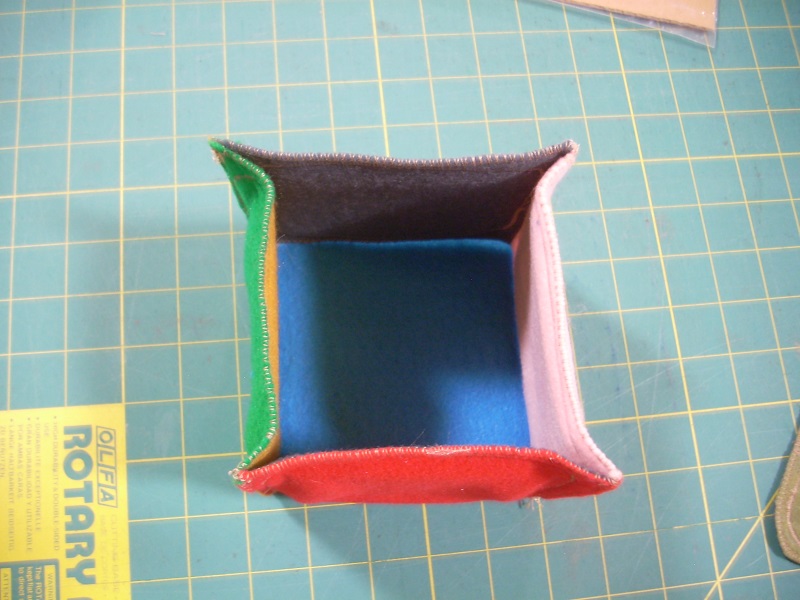 turn box upside down; pinch bottom corners together; eyelets go in these four corners |
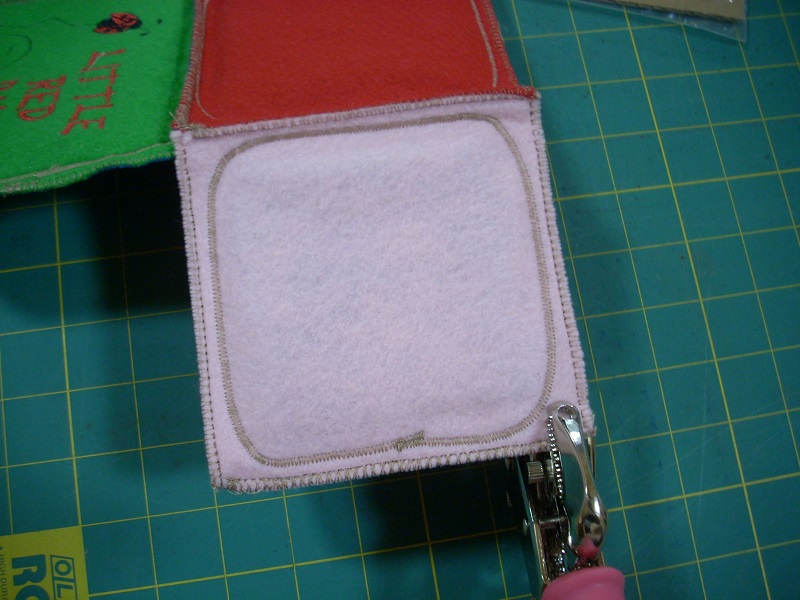 at each pinched corner, cut hole; attach eyelet centered in space between zigzags and overedge |
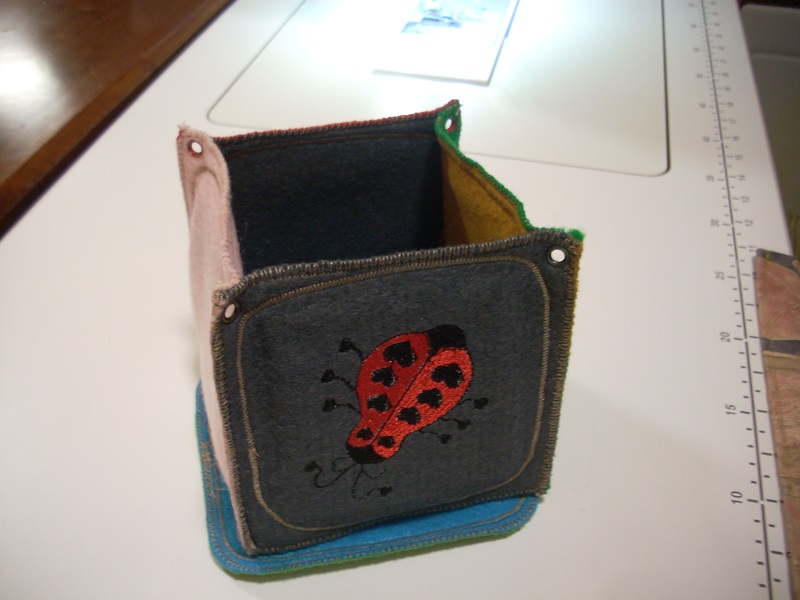 four bottom corners with eyelets attached |
|
(11) Attach eyelets to bottom of box: Decide which side of the bottom square should be on the outside. Match the eyelet color to this side. Mark placement of eyelets on bottom square. There are two eyelets in each corner; the eyelet centers should be about 1/2" apart. The holes should not touch the zigzag stitching, but should be close. Punch holes. Attach eyelets. |
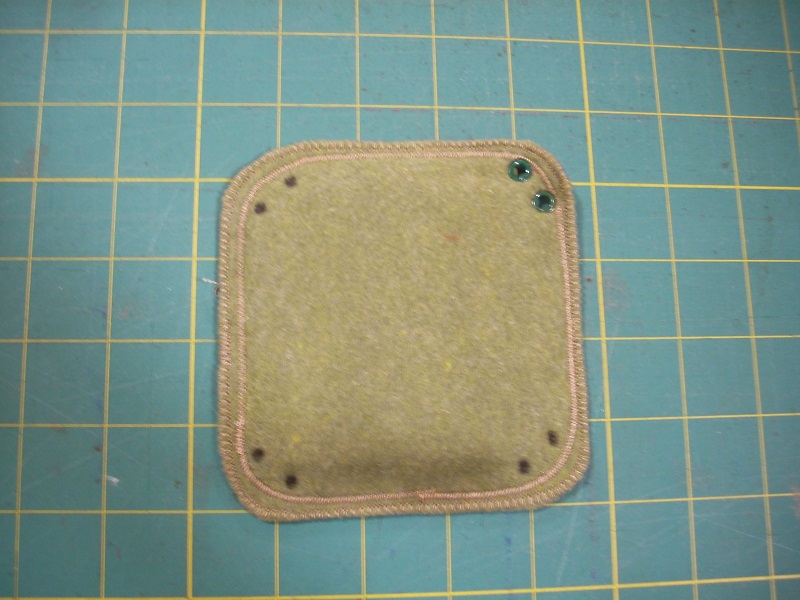 mark placement of eyelets on bottom square |
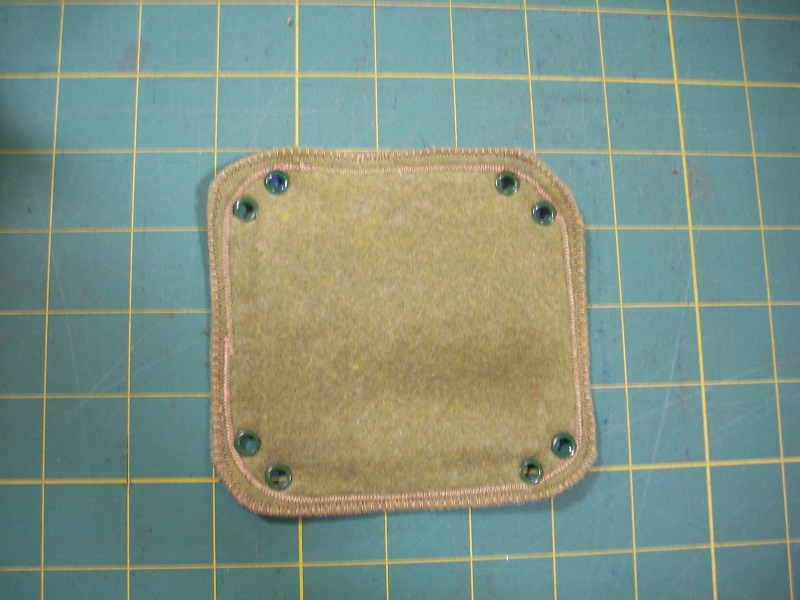 punch holes; attach eyelets; match eyelet color to outside felt |
|
(12) Attach sides to bottom with pipe cleaners: Cut four pieces of pipe cleaner, each 4" long. Insert pipe cleaner from side up through ‘far’ hole on bottom square (a). Insert pipe cleaner back down into the ‘near’ hole (b). Twist securely to lock (c). Bend the sharp pipe cleaner ends in on themselves; press close to box (d). |
|